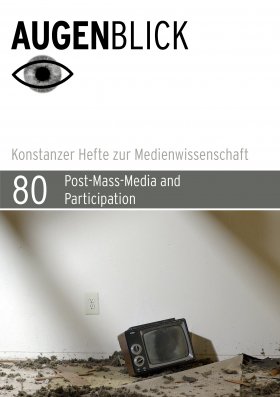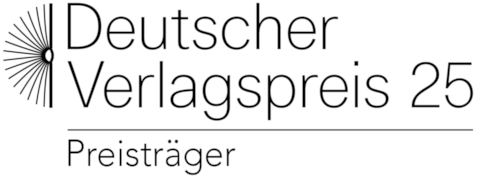 |
|
|
AugenBlick – Konstanzer Hefte zur Medienwissenschaft [80] 108 Seiten, 5 Abb., 148 x 210 mm, englisch1. Aufl., April 2021 Buch 12,90 € / E-Book 12,90 € sofort lieferbarISBN 978-3-7410-0209-0 |
Post-Mass-Media and Participation
AugenBlick – Konstanzer Hefte zur Medienwissenschaft [80]
Three decades after Félix Guattari introduced the concept of "post-mass-media" as a necessary condition of media participation, it is by no means self-evident that his reaction to events leading up to 1989 would still attract a new generation of scholars today. Yet, the concept continually reappears to address the role of technology in democratic participation and the relation between the aesthetic and the political. Originating in discussions of the DFG research group Media and Participation, this issue attests to the continued need to remain attentive to the shifting forms of political and artistic participation and their multiple re-valuations in what has been called a “post-media age”. Instead of proposing a theory of media, which is said to facilitate and shape participation, post-media emerges from the beginning as a question of participation, which is itself ‘medial.’ This framing is central to this issue of AugenBlick and allows for the question of post-media to be situated in our current condition through investigations of video games, documentary projects, YouTube, aesthetics and ethics in the political field, as well as the global pandemic.
Download als PDF
Inhalt
Table of Content
Michel Schreiber and Milan Stürmer
Editorial.
Markus Spöhrer
"Hear the Difference": Audio Game Prosumer Communities in a Postmedia Context.
From Audyssey to Audiogames.net.
Urs Humpenöder
Post-mass-media: The dilemma between emancipatory re-appropriation and the new technological condition.
Anna Wiehl
Post-Mass-Media as networked|networking performativity
Revisiting Guattari’s concept of thinking through current documentary and artistic practices.
Gala Hernández
Common images.
What post-media does to cinema.
Jacopo Bodini
Post-Media, Virality, and Desire. Untimely meditations.
Mathias Denecke
“Work it”. Demands and Entitlements of post-medial participation.












